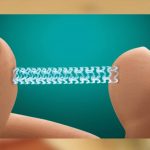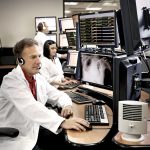February 27, 2020 by John Fernandez
‘Silent’ Heart Attacks: Vital Facts on...
Nearly half of all heart attacks may be “silent” – occurring without...
‘We Really Are What We Eat’: Benefits...
“Those nutrients that we eat from the foods we choose directly impact our blood pressure, our blood sugar and our cholesterol."
October 13, 2016 / 2 min read
Hearty Savings: Exercise Can Reduce Your Healthcare...
Regularly exercising at moderate levels – the minimum recommended by the American Heart Association -- can add up to a savings of $2,500 a year...
September 13, 2016 / 2 min read
‘Silent’ Heart Attacks: What You Need to...
Because the warning signs can be very subtle or go unrecognized, people who suffer a silent heart attack have a three times higher chance of...
August 31, 2016 / 2 min read
Roundup: Kids Should Have Less Than 6...
Children and teens from the ages of 2 to 18 should consume no more than 25 grams of "added sugar" a day, the equivalent of...
August 26, 2016 / 3 min read
First ‘Absorbable’ Heart Stent Opens New Era...
The Absorb stent will advance the treatment of coronary artery disease to the next level, say doctors at Miami Cardiac & Vascular Institute who took...
July 25, 2016 / 3 min read
Roundup: Global Study Finds 9 of 10...
Stroke is the fifth-leading cause of death in the United States, but nine out of 10 strokes are preventable, according to a new large-scale global...
July 22, 2016 / 2 min read
Watch Now: Surviving ‘Sudden Cardiac Death’
David Navarro remembers being out with friends for a casual Sunday afternoon dinner in Coral Gables. He has no recollection of what happened next. Mr....
July 5, 2016 / 2 min read
Treating Boomers Is a Game-Changer for Healthcare
In Florida, home to the nation’s largest population of people 65 and older, the effect would be particularly great.
June 28, 2016 / 3 min read
Men, It’s Time to Talk About Your...
June is Men’s Health Month, a time to encourage the men in everyone’s lives to seek regular medical advice and potentially get early treatment for...
June 21, 2016 / 3 min read
Telehealth: Where Technology, Medicine Interact for Life-Saving...
Specially trained doctors and critical care nurses use advanced technology to electronically monitor each patient’s medical condition 24 hours a day, seven days a week,...
June 20, 2016 / 3 min read











